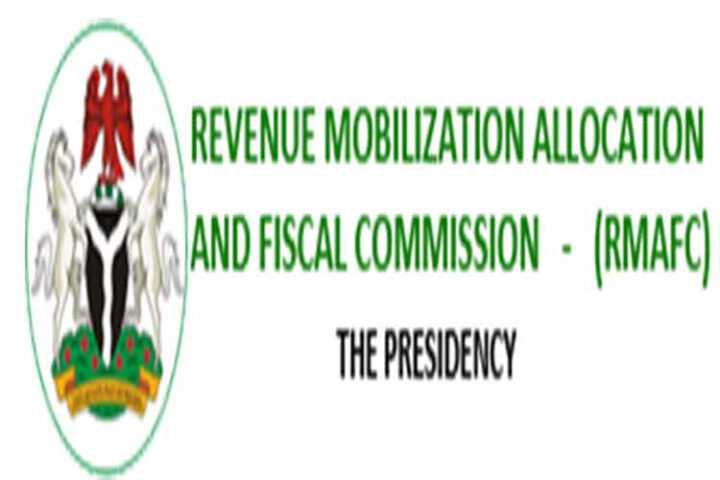Nigeria’s key revenue collection and allocation agencies have unveiled a coordinated initiative aimed at improving revenue recovery, enhancing transparency, and strengthening fiscal discipline across all tiers of government. The new initiative, announced in Abuja, is expected to boost non-oil revenue generation and ensure more effective distribution of national income to federal, state, and local governments.
The move, spearheaded by the Revenue Mobilisation, Allocation and Fiscal Commission (RMAFC) in collaboration with the Federal Inland Revenue Service (FIRS), Nigeria Customs Service (NCS), and the Office of the Accountant General of the Federation (OAGF), is part of ongoing efforts to plug leakages in government earnings and optimise fiscal operations.

Speaking at the launch, RMAFC Chairman, Alhaji Mohammed Shehu, said the recovery initiative was designed to strengthen inter-agency cooperation, improve compliance with tax laws, and ensure that all collectable revenues are duly remitted into government coffers. He explained that the strategy would also involve auditing past revenue transactions and enforcing sanctions on defaulting entities.
Shehu stated that the initiative would target critical sectors such as oil and gas, telecommunications, maritime, and manufacturing, which collectively contribute a substantial portion of government revenues but remain vulnerable to underreporting and inefficiencies.
“The new recovery framework will prioritise accountability and ensure that revenues due to the federation are not lost through weak collection systems or administrative lapses. This partnership between agencies will bring about greater synergy in data sharing, enforcement, and monitoring of remittances,” Shehu said.
He added that the commission had already begun reconciling revenue remittances across various ministries, departments, and agencies (MDAs) to identify discrepancies and recover outstanding amounts. According to him, the success of the initiative depends on the collective resolve of the institutions involved to act decisively against leakages and fraudulent practices.
The FIRS Chairman, Zacch Adedeji, who also spoke at the event, emphasised that the recovery drive aligns with President Bola Tinubu’s fiscal policy direction, which focuses on expanding Nigeria’s revenue base and reducing dependence on borrowing. Adedeji reaffirmed FIRS’s commitment to leveraging technology to improve tax collection and ensure real-time tracking of remittances.
“We are committed to building a sustainable revenue system that relies on transparency, digitalisation, and accountability. This collaboration will help us enforce compliance and recover unremitted funds that rightfully belong to the federation,” Adedeji stated.
Representatives of the Nigeria Customs Service also pledged to align with the initiative by tightening border operations and improving duty collection systems. The Comptroller-General of Customs, Bashir Adeniyi, noted that the agency had stepped up its automation processes to eliminate manual bottlenecks and enhance real-time reporting of revenue inflows.
He said, “Through advanced monitoring tools, we can now track imports, exports, and duty payments more accurately. Collaboration with other agencies will help us close existing gaps and improve overall efficiency in national revenue management.”
Similarly, the Accountant General of the Federation, Mrs. Oluwatoyin Madein, commended the effort, describing it as a “critical step toward fiscal sustainability and accountability.” She said the OAGF had introduced new frameworks for auditing and reconciliation to ensure all funds collected by revenue agencies are properly accounted for and allocated to the appropriate tiers of government.
Economic experts have lauded the inter-agency initiative as timely and necessary to address Nigeria’s widening fiscal gap. Public finance analyst, Dr. Kola Adegoke, said the move could significantly reduce the government’s revenue shortfall if properly implemented.
“The collaboration among revenue agencies is a welcome development. For too long, poor coordination has led to duplication of efforts and loss of billions in potential revenue. If this partnership is institutionalised, it could improve transparency and strengthen the country’s fiscal resilience,” Adegoke said.
Analysts also believe the initiative will enhance Nigeria’s credit profile by improving public finance management and reducing the government’s reliance on debt financing. With oil revenues still fluctuating due to global price volatility, the focus on non-oil sectors and improved recovery systems could help diversify fiscal sources and promote long-term stability.
The recovery framework will include periodic performance audits, digital monitoring dashboards, and a harmonised reporting system among the participating agencies. These tools are expected to enhance visibility, promote accountability, and ensure real-time tracking of funds due to the federation account.
In the coming months, the agencies plan to roll out training programmes and capacity-building sessions for staff involved in revenue mobilisation and reconciliation to ensure smooth implementation of the initiative.
The collaborative effort represents a renewed commitment to strengthening Nigeria’s public finance system and restoring public trust in the nation’s fiscal management institutions. As the government continues to prioritise transparency and efficiency in revenue collection, the new recovery initiative is seen as a major step toward ensuring that every naira due to the nation is properly collected, recorded, and allocated.
Support InfoStride News' Credible Journalism: Only credible journalism can guarantee a fair, accountable and transparent society, including democracy and government. It involves a lot of efforts and money. We need your support. Click here to Donate
